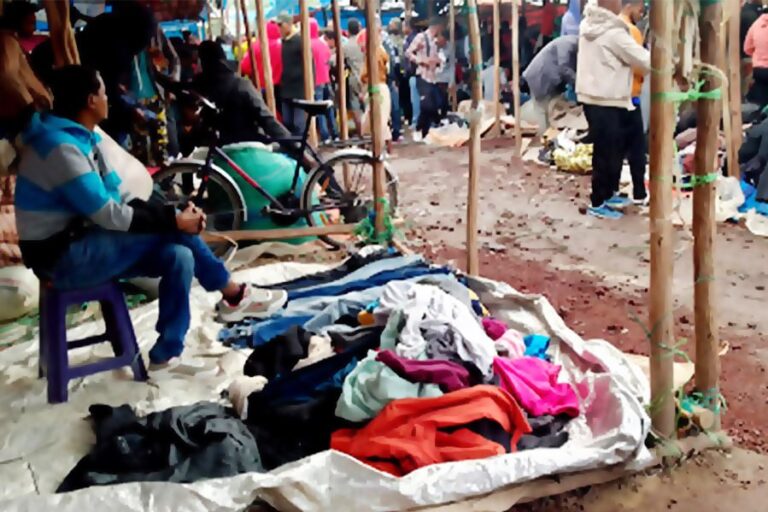In a historic show of unity, 19 African Heads of State assembled at a major summit committed to focusing development aspirations across the continent. This ambitious agenda, aiming to dramatically improve lives and create new opportunities, positions the World Bank’s International Development Association (IDA) as a cornerstone for success.
Beyond pronouncements, the summit witnessed the birth of a significant partnership—a coalition uniting civil society, foundations, the private sector, and young people. The new coalition will champion a robust and ambitious replenishment of IDA’s resources, fueling Africa’s development engine.
A post-summit communique detailed leaders’ unwavering commitment to strengthen governance, unlock private sector potential for job creation, mobilize domestic resources, and deliver on climate change promises. Additionally, they prioritized increased energy and digital access, alongside enhanced resilience to climate change and conflict.
The Government of Kenya and the World Bank Group co-hosted the summit, and each emphasized the critical role of both IDA— the World Bank Group’s fund focused on those most in need—and the global community in supporting Africa’s aspirations.
Dr. William Ruto, President of Kenya, underscored the continent’s urgency for change and its desire to capitalize on this pivotal moment of opportunity. He passionately advocated for stronger donor contributions to IDA21, emphasizing its role in driving transformative change not just in Africa but around the world.
“Our people and we, the leaders of Africa, are impatient for change and we want to transform the continent at this moment of tremendous opportunities,” President Ruto said. “IDA has been and must remain a dependable development partner for Africa, and we urge stronger donor contributions to IDA21 so that together we can drive transformational impact not only for a better Africa, but also for a better world.”
World Bank Group President Ajay Banga echoed these sentiments, stressing the need for unwavering global support, particularly from IDA, as Africa charts its course toward a prosperous and progressive future.
“We are united by a shared vision for the future of Africa—a continent rich in diversity, culture, and potential, thanks to its young people and natural resources,” Banga said. “These are the ingredients that can power our future. The International Development Association has been a steadfast partner in Africa’s development journey, and this summit symbolizes our collective commitment to accelerating progress. This will require more from IDA, more from the World Bank Group, more from governments, and more from the private sector.”
For decades, IDA has served as a powerful engine for economic growth across Africa. It empowers progress through grants and highly concessional loans, fueling strategic investments in building a skilled and healthy workforce, and nurturing job-generating industries like agriculture. Recent efforts to streamline access have further enhanced its effectiveness.
Currently, IDA supports 75 nations, 39 of them in Africa. Over 70 percent of its resources are directed toward the continent, playing a vital role in achieving the World Bank Group’s goal of bringing electricity to 250 million Africans by 2030.
The call for replenishment comes amid a multitude of interconnected hardships: pandemics, climate change, food insecurity, fragility, and conflict. Yet, Africa is also brimming with potential: vast natural resources, abundant sunshine, and the world’s fastest-growing youth population.
Amplifying united support for Africa’s bold vision and leveraging the strength of the newly formed coalition can help ensure an undeniably bright future for the continent.
Leaders representing a coalition of global youth, the private sector, and civil society stressed the need for a robust IDA21 replenishment and committed to work in partnership.
Ndidi Nwuneli, President and CEO of the ONE Campaign, said “IDA21 must be different. It must be transformative. This means that we must collectively work to make sure IDA21 is robust and ambitious and is delivered with transparency and accountability for Africa’s citizens, ensuring that we build stable and resilient economies for the future.”
Sellah Bogonko, CEO of Jacob’s Ladder, who represented a cross section of African youth, said “True leadership is not just about those in position but each one of us doing the impossible, every day, in our own little way. We young people are not merely asking what you can do for us. We are available to co-create solutions together with you—our elected leaders—with support from IDA.”
James Mwangi, CEO of Equity Group Holdings, said “This event is a testament to our commitment to driving sustainable development and financial inclusion. Together, with IDA we are paving the way for economic empowerment and transformation in our communities, shaping a brighter future for all.”
Nir Bar Dea, CEO of Bridgewater Associates, said “Africa is expected to have the largest workforce within the next decade, and by 2075, one-third of the world’s population will be African. Yet today, there are challenges in accessing key resources that are essential to economic growth that the IDA replenishment can help secure. We are building on Bridgewater’s mission to understand the world and turn our insights and research into results by providing a deeper understanding of how IDA21 will shift the economic trajectory of African nations and global markets and economies.”
Hugh Evans, Co-Founder and CEO of Global Citizen, said “Africa has the youngest population of any continent, and presents the world’s biggest development opportunity of the next 30 years – but only if the world’s richest nations stop cutting foreign aid and invest the financing necessary to address energy poverty. Through a fully funded and functional IDA, the continent’s young people stand to achieve their full potential.”
Distributed by APO Group on behalf of The World Bank Group.




